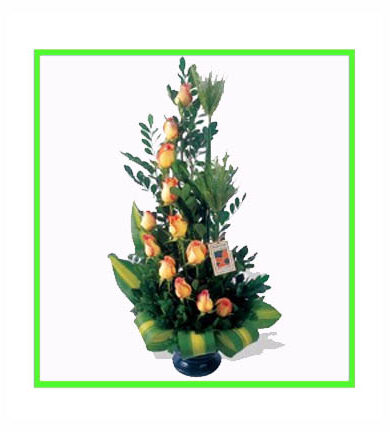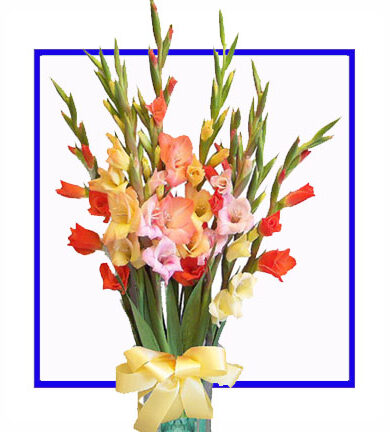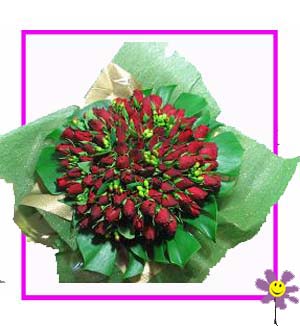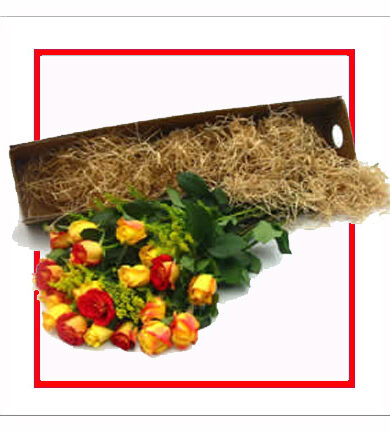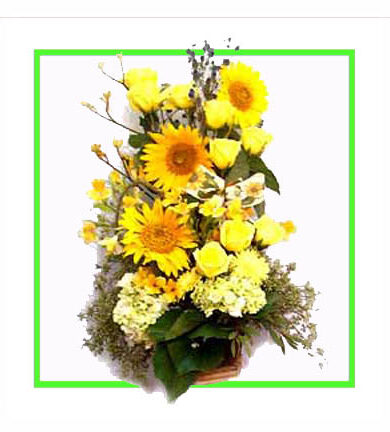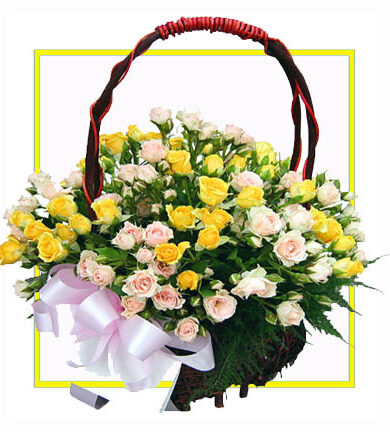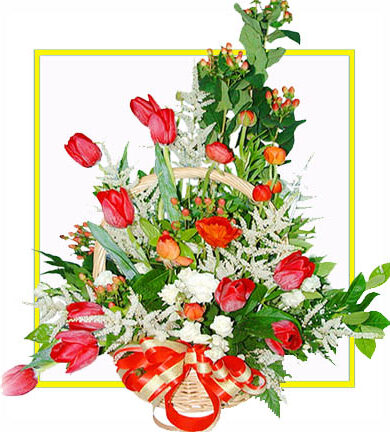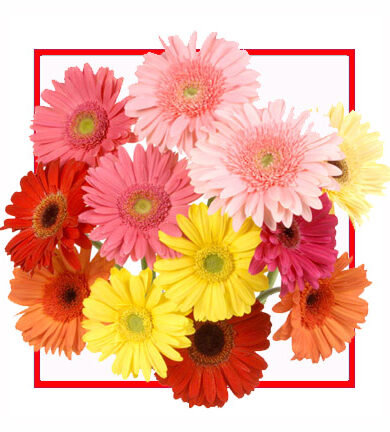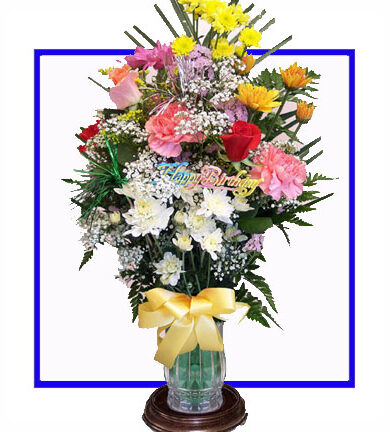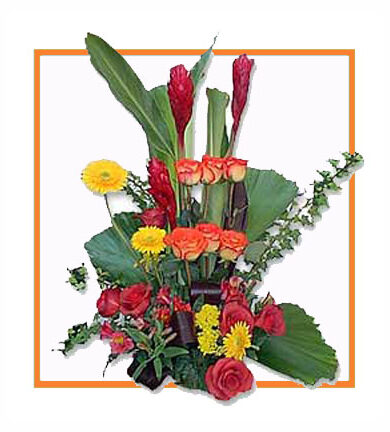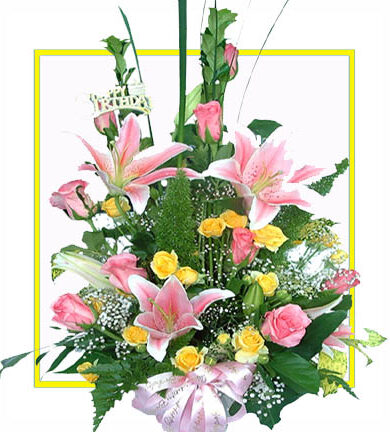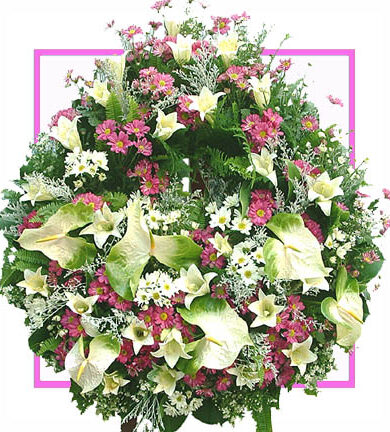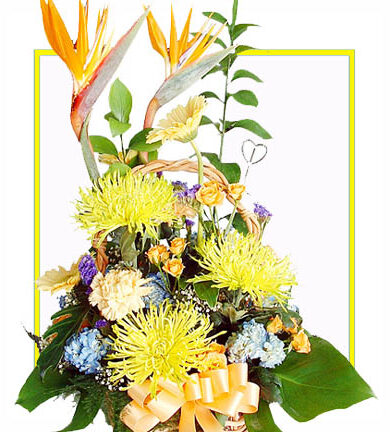Kochi (Cochin) is home to the Southern Naval Command of the Indian Navy and the state headquarters of the Indian Coast Guard with an attached air squadron, named Air Squadron 747. Commercial maritime facilities of the city include the Port of Kochi (Cochin), an International Container Transshipment Terminal, the Cochin Shipyard, offshore SPM of the Kochi (Cochin) Refineries, and the Kochi (Cochin) Marina. Kochi (Cochin) is also home for the Cochin Stock Exchange, International Pepper Exchange, major chemical industries like the FACT, TCC, IREL, HOCL and Kochi (Cochin) Refineries, electrical industries like TELK and industrial parks like the Cochin Special Economic Zone and Infopark. Kochi (Cochin) is home for the High Court of Kerala and Lakshadweep, and the Cochin University of Science and Technology. The city lies about 220 kilometres (137 mi) north of the state capital Thiruvananthapuram, and about 180 kilometres (112 mi)south of Kozhikode. |
Kochi (Cochin) is considered to be the hub of the vibrant Malayalam movie industry, especially new generation Malayalam movies. The rise of Kochi (Cochin) to the centre stage of the entertainment industry occurred coinciding with the economic boom of the last couple of decades. A large number of movies are shot in Kochi (Cochin) every year. Kochi (Cochin) also has a host of state-of-the-art production and post production facilities. Due to these reasons, major section of film personalities including of actors, technical experts and other related workers reside in Kochi (Cochin). There are over twelve cinema halls that screen movies in Malayalam, Tamil, English and Hindi. The city hosts Kerala’s first cine multiplex, at the Oberon Mall with four screens. Gold Souk Grande Kochi (Cochin) also has a cine multiplex operated by Q cinemas. 16 more multiplex screens are expected in the city in the near future. |
The orphanages for children under Don Bosco Sneha Bhavan Cochi are Sneha Bhavan Annexe, SnehaBhavan, Valsalya Bhavan, Don Bosco and Bosco Nilayam. The Childline India project in Cochin is taken in collaboration with Don Bosco. Children in distress and in need of help can contact in ‘1098’ (toll free number). Sneha Bhavan Annexe is the first point of contact with children and children can stay as a safe night shelter. Sneha Bhavan is a home for the children from the streets and for those from unhealthy and risky situations. The Valsalya Bhavan centre is solely for the girls who are rescued from the streets. Runaways, street children, children of sex workers, abused children and child labourers all live here. Along with primary and high school education at a local school, the centre provides shelter, food, clothing and educational support. |
Kochi (Cochin)’s major religions are Hinduism, Christianity and Islam. Jainism, Judaism, Sikhism and Buddhism, with smaller followings, are also practised in Kochi (Cochin). Though 47% practise Hinduism, Christianity’s large following (35%) makes Kochi (Cochin) a city with one of the largest Christian populations in India. The majority of the city’s residents are Malayalis. However, there are significant ethnic minority communities including Tamils, Gujaratis, Jews, Anglo-Indians, Sikhs, Konkanis and Tulus. Malayalam is the main language of communication and medium of instruction for primary education, although a number of schools do offer English medium education. The higher education is invariably in English medium, and it is the preferred language in business circles. Tamil and Hindi are widely understood—albeit rarely spoken. |
The city of Kochi (Cochin) (pop. 601,574) is the most densely populated city in the state and is part of an extended metropolitan region (pop. 2.1 million), which is the largest urban agglomeration in Kerala. Kochi (Cochin) city is also a part of Greater Cochin region and is classified as a B-1 grade city by the Government of India, making it the highest graded city in Kerala. Kochi (Cochin) ranks first in the total number of international and domestic tourist arrivals in Kerala. Kochi (Cochin) has been ranked the sixth best tourist destination in India according to a survey conducted by the Nielsen Company on behalf of the Outlook Traveller magazine. Kochi (Cochin) was one of the 28 Indian cities found to be among the emerging 440 global cities that will contribute 50% of the world GDP by the year 2025, in a study done by McKinsey Global Institute. |
Portuguese navigator, Pedro Álvares Cabral founded the first European settlement in India at Kochi (Cochin) in 1500. From 1503 to 1663, Fort Kochi (Cochin) was ruled by Portugal. This Portuguese period was a harrowing time for the Cochin Jews, as the Inquisition was active in Portuguese India. Kochi (Cochin) hosted the grave of Vasco da Gama, the first European explorer to set sail for India, who was buried at St. Francis Church until his remains were returned to Portugal in 1539. The Portuguese rule was followed by that of the Dutch, who had allied with the Zamorin of Calicut to conquer Kochi (Cochin). By 1773, the Mysore ruler Hyder Ali extended his conquest in the Malabar region to Kochi (Cochin) forcing it to become a tributary of Mysore. The hereditary Prime Ministership of Kochi (Cochin) held by the Paliath Achans ended during this period. |
The current metropolitan limits of Kochi (Cochin) include the mainland Ernakulam, Fort Kochi (Cochin), the suburbs of Edapally, Kalamassery and Kakkanad to the northeast; Tripunithura to the southeast; and a group of islands closely scattered in the Vembanad Lake. Most of these islands are very small, varying in area from 6 km2 to less than 1 km2 (1,500 to less than 250 acres). The state government and the GCDA have plans to include Mala and Kodungaloor in Thrissur district, Angamali, Perumbavoor, Piravom and Kolencherry in Ernakulam district, Thalayolaparambu and Vaikkom in Kottayam and Cherthala in Alappuzha district with Kochi (Cochin) metropolitan limits. The newly formed metropolis would be put under the charge of a new authority called Kochi (Cochin) Metropolitan Regional Development Authority. |
Kochi (Cochin)ites generally partake of Keralite cuisine, which is generally characterised by an abundance of coconut and spices. Other South Indian cuisines, as well as Chinese and North Indian cuisines are popular. Fast food culture is also very prominent. Being a tourist hotspot, Fort Kochi (Cochin) have a number of restaurants that offer international cuisine, like Italian, French, Mexican etc. Being close to the ocean and the backwaters, Kochi (Cochin) has an abundance of seafood, which reflects in the cuisine. A service known as You Buy, We Cook is available at the waterfront of Fort Kochi (Cochin), where the fresh seafood purchased from the nets is cooked as per the customers needs. Arabian food joints that serve Shawarma and roasted chicken are a new addition to the fast food scene in the city. |
Under the Köppen climate classification, Kochi (Cochin) features a tropical monsoon climate (Am). Kochi (Cochin)’s proximity to the equator along with its coastal location results in little seasonal temperature variation, with moderate to high levels of humidity. Annual temperatures range between 23 and 31 °C (73–88 °F) with the record high being 38 °C (100 °F), and record low 17 °C (63 °F). From June to September, the south-west monsoon brings in heavy rains as Kochi (Cochin) lies on the windward side of the Western Ghats. From October to December, Kochi (Cochin) receives lighter (yet significant) rain from the northeast monsoon, as it lies on the leeward side. Average annual rainfall is 3,228.3 mm (127.10 in), with an annual average of 132 rainy days. |
The pattern of primary education is essentially the same all over the state. There are government owned schools and government aided schools, which are affiliated to the Kerala State Education Board. A few privately owned schools are also affiliated to the system. Most of the schools owned by private organizations or individuals are affiliated to the Central Board for Secondary Education (CBSE). Indian Certificate of Secondary Education (ICSE) have some schools affiliated to them as well. The state education board offers both Malayalam and English medium instruction, while the other boards offer English medium alone. There are a few schools that follow international curricula, such as IB and IGCSE. |
The Cochin University of Science and Technology (CUSAT) is a major university named after the city. Most of the colleges in Kochi (Cochin) offering tertiary education are affiliated either with the Mahatma Gandhi University or with the Cochin University. Kochi (Cochin) has one of the campuses of the Indian Maritime University at Willingdon Island. Sree Sankaracharya University of Sanskrit in Kalady is a research oriented university located at the outskirts. Other national educational institutes include the Central Institute of Fisheries Nautical and Engineering Training, the National University of Advanced Legal Studies, the National Institute of Oceanography and the Central Marine Fisheries Research Institute. |
Exports and allied activities are also important contributors to the city’s economy. The Cochin Port currently handles export and import of container cargo at its terminal at Willingdon Island. The International Container Transshipment Terminal operating out of Vallarpadam, is India’s largest transshipment terminal. Cochin Port Trust also planning to build an Outer Harbour near Puthuvype. Kochi (Cochin)’s historical reliance on trade continues into modern times, as the city is a major exporter of spices and is home to the International Pepper Exchange, where black pepper is globally traded. The Spices Board of India and World Spice Organisation are headquartered in Kochi (Cochin). |
It also operates passenger ships to Colombo and Lakshadweep. Boat services are operated by Kerala Shipping and Inland Navigation Corporation, the State Water Transport Department and private firms from various boat jetties in the city. The junkar ferry for the transshipment of vehicles and passengers between the islands are operated between Ernakulam and Vypin, and between Vypin and Fort Kochi (Cochin). However, with the construction of the Goshree bridges (which links Kochi (Cochin)’s islands), ferry transport has become less essential. The main boat jetties are Ernakulam Main Boat Jetty near Park Avenue, High Court Jetty in Banerjee Road, Embarkation Jetty in Willingdon Island and Fort Kochi (Cochin) Jetty. |
Kochi (Cochin) has two golf courses in the city, and one in the suburbs. The oldest golf club is located at Bolgatty Palace constructed in 1903, which is a nine hole facility run by Cochin Golf Club society. The Cochin Golf and Country Club located near to Cochin Airport, operated by CIAL, is Kerala’s first 18 hole golf course with a playing area of over 7,200 yards. The first phase of the all-weather golf course comprising nine holes was opened in May 2010 for members and public. The expansion to a 18 hole course is progressing, which is scheduled to be open in September 2012. The nine hole golf course at the Naval Base is restricted only for military personnel. |
The spur line to the port and the Cochin Harbour Terminus station are temporarily out of commission because of an accident at the harbour bridge. A spur line exclusively for freight traffic connects the International Container Transshipment Terminal to the main line at Edapally. India’s longest rail bridge – the 4.62 km long Vembanad Rail Bridge is also part of this line. In addition, Southern Railways are planning a suburban railway system connecting Kochi (Cochin) to nearby towns and cities, using Mainline Electrical Multiple Unit services, with the first services expected to begin in early 2011 between Kollam and Ernakulam for which works are underway. |
The IT and ITES related industries are growing up in Kochi (Cochin). Availability of cheap bandwidth through undersea cables and lower operational costs compared to other major cities in India, has been to its advantage. Various technology and industrial campuses including the government promoted InfoPark, Cochin Special Economic Zone and KINFRA Export Promotion Industrial Park operate in the outskirts of the city. Several new industrial campuses are under construction in the suburbs of the city. SmartCity at Kakkanad is the prominent project under proposal. Cyber City at Kalamassery is another integrated IT township SEZ being planned in the private sector. |
The city and outskirts are home to four medical schools — Amrita Institute of Medical Sciences and Research Centre at Elamakkara, Cochin Medical College at Kalamassery, Sree Narayana Institute of Medical Sciences, M.O.S.C. Medical College, Kolenchery. Some of the prestigious general colleges are Maharaja’s College, St. Albert’s College, St. Teresa’s College, Sacred Hearts College, Bharata Matha College, Aquina’s College and Cochin College. The major Engineering and Technology colleges in the city and suburbs are CUSAT Engineering Schools, Model Engineering College and Mar Athanasius College of Engineering(MACE) at Kothamangalam on the outskirts. |
The notable schools in the government sector are Sree Rama Varma High School, Edappally High School, Government School-Kochi (Cochin) and Govt Girls High School. There are Kendriya Vidyalaya, Chinmaya Mission and Bharatiya Vidya Bhavan run several quasi-private charter schools within the city limits, as well as in the suburbs. There are several fully private schools that are owned by secular and religious trusts which are of particular renown, such as The Delta Study, Rajagiri Public School, Cochin Refineries School, Toc-H Public School, Global Public School, Choice School, Vidyodaya School, Mar Thoma Public School and Nava Nirman Public School. |
Kochi (Cochin) was the centre of Indian spice trade for many centuries, and was known to the Yavanas (Greeks and Romans) as well as Jews, Arabs, and Chinese since ancient times. Kochi (Cochin) rose to significance as a trading centre after the port around Kodungallur (Cranganore) was destroyed by massive flooding of Periyar in 1341. The earliest documented references to Kochi (Cochin) occur in books written by Chinese voyager Ma Huan during his visit to Kochi (Cochin) in the 15th century as part of Admiral Zheng He’s treasure fleet. There are also references to Kochi (Cochin) in accounts written by Italian traveller Niccolò Da Conti, who visited Kochi (Cochin) in 1440. |
Kochi (Cochin) has some of the leading B-Schools in the region. The Indian Institute of Management Kozhikode (IIMK) has set up its first satellite campus at Athulya building in InfoPark, Kochi (Cochin). Cochin University’s School of Management Studies (SMS) is the first and oldest managerial education institution in South India. SCMS Cochin is one of the emerging B-Schools in the country. Another major B-School XIME is opening a new campus in Kochi (Cochin). Other leading managerial institutions include Rajagiri Centre for Business Studies, Kochi (Cochin) Business School, Amrita School of Business, Albertian Institute of Management and Toc-H B school. |
According to many historians, the precursor state to Kingdom of Kochi (Cochin) came into existence in early 12th century, after the fall of the Chera Kingdom. The reign of the Kingdom was hereditary, and the family that ruled over the region was known as the Perumpadappu rulers in the local vernacular. The mainland Kochi (Cochin) remained the capital of the princely state since the 18th century. The King of Kochi (Cochin) only had authority over the region encompassing the present city of Kochi (Cochin) and adjoining areas. However, during much of this time, the kingdom was under foreign suzerainty, and the King often only had titular privileges. |
Kochi (Cochin) houses several leading Malayalam television channels like Indiavision, Jeevan TV, Manorama News, Reporter and We (music channel of Kairali TV) as well as major news studios of Asianet, Kairali TV, Amrita TV and Doordarshan. Prasar Bharati maintains its earth station and broadcasting center in Kakkanad, Kochi (Cochin). Satellite television services are available through DD Direct+, Dish TV, Sun Direct DTH and Tata Sky. FM radio channels broadcast from Kochi (Cochin) are Rainbow FM (AIR) 101.9 MHz, AIR Kochi (Cochin) 102.3 MHz, Club FM 94.3 MHz, Radio Mango 91.9 MHz, Red FM 93.5 MHz |
On 13 September 2012, Prime Minister Manmohan Singh laid the foundation stone for the Kochi (Cochin) Metro Rail project. The Delhi Metro Rail Corporation (DMRC), with E Sreedharan as principal advisor, has been entrusted to execute the implementation of the Kochi (Cochin) Metro. The project received the central Public Investment Board’s green signal in March 2012. The union cabinet gave its final nod for Kochi (Cochin) Metro on 3 July 2012. Preparatory works for the system that includes building railway over bridges, repaving roads and land acquisition are in progress. |
Palluruthy Relief Settlement is under Corporation of Cochin and managed in association with Peoples Council for Social Justice. There are about 300 inmates and many of them are mentally ill. The night shelter for women run by Corporation of Cochin near Kerala State Road Transport Corporation bus stand provides free and safe accommodation. Peoples Council for Social Justice was found in 1985 under the patronage of Justice V. R. Krishna Iyer with the aim to work for human rights protection, free legal aid and to strive for social justice. |
The primary form of public transport within the city is largely dependent on privately owned bus networks. The state-run also operates its services in the city through the ThiruKochi (Cochin) service. The major bus terminals in the city are Ernakulam Town, Ernakulam Jetty and the private bus terminal at Kaloor. An integrated transit terminal namely The Mobility Hub at Vytilla is under 2nd phase of construction. The terminal acts as a hub for long distance bus services away from the city centre, and also to provide access to the other public transport facilities. |
The Cochin airport provides direct connectivity to popular international destinations in the Middle East, Malaysia and Singapore and to most major Indian cities apart from tourist destinations like Lakshadweep. Kochi (Cochin) is also the headquarters of the Air India Express service. With a terminal area of 840,000 sq ft (78,000 m2), and a passenger capacity of 1800, it is the largest and busiest airport in the state. It is also the fourth busiest airport in India in terms of international passenger traffic, and seventh busiest overall. |
Kochi (Cochin) ( ( listen)), formerly Cochin, is a major port city on the west coast of India by the Arabian Sea and is part of the district of Ernakulam of the state of Kerala. Kochi (Cochin) is often called by the name Ernakulam, which refers to the mainland part of the city. The civic body that governs the city is the Corporation of Cochin, which was constituted in the year 1967, and the statutory bodies that oversee its development are the Greater Cochin Development Authority (GCDA) and the Goshree Islands Development Authority (GIDA). |
India’s fourth largest stadium and third largest cricket stadium, the Jawaharlal Nehru International Stadium located in Kaloor, is a major facility for football and cricket. Recently, the stadium was renovated to facilitate more cricket tournaments as well as for hosting IPL Matches. Kochi (Cochin) was home to the Indian Premier League cricket team, the Kochi (Cochin) Tuskers which won franchise rights to play IPL which participated in the 2011 edition of IPL. Sreesanth who plays for the Indian National Cricket team hails from Kochi (Cochin). |
With a population of 601,574 As of 2011, the city of Kochi (Cochin) has Kerala’s highest population density parameter with 6340 people per km2. As of 2011, Kochi (Cochin) had a metropolitan area population of 2,117,990. Scheduled castes and tribes comprise 14% of the city’s population. .The female-to-male ratio is 1,028:1,000, significantly higher than the all-India average of 933:1,000. Kochi (Cochin)’s literacy rate is 97.5%. The female literacy rate lags that of males by 1.1%, amongst the lowest such gaps in India. |
Kochi (Cochin) is the headquarters of the Southern Naval Command, the primary training centre of the Indian Navy. The Cochin Shipyard, which was the largest shipbuilding facility in India until 2008, contributes to the economy of the city. The fishing harbour at Thoppumpady is a minor fishing port in the state and supplies fish to local and export markets. To further tap the potential of the all-season harbour at Kochi (Cochin), an international cruise terminal and several marinas are being constructed. |
There are many good people doing independent social service. The Italian Sister Sabiola conducts a home at Fort Cochin known as “Ashwasa Bhavan”, for young orphaned children. Br. Judson run his own mobile bath in his vehicle for the abandoned: His “Mobile Bath Service” moves around Kochi (Cochin) mornings and in evenings to clean and clothe people living on the streets. Judson washes and cleanses their wounds, provides them new clothes and food, and takes them to shelters in the city. |
Kochi (Cochin) has an established electronics hardware industry with companies such as V-Guard Industries, FCI OEN Connectors and SFO Technologies. The Government of Kerala has announced a project to build an industrial park named Electronic City spanning an area of 340 acres (140 ha), to cater to the electronic hardware industries. The private operator NeST is building a Special Economic Zone specifically for electronics hardware spanning an area of 30 acres (12 ha). |
The city’s economic growth gathered momentum after economic reforms in India introduced by the central government in the early-1990s. Since 2000, the service sector has energized the city’s economy. The establishment of several industrial parks based on IT and other port based infrastructure triggered a construction and realty boom in the city. Over the years, Kochi (Cochin) has witnessed rapid commercialisation, and has today grown into the commercial hub of Kerala. |
Towards the early 20th century, trade at the port had increased substantially, and the need to develop the port was greatly felt. Harbour engineer Robert Bristow was brought to Kochi (Cochin) in 1920 under the direction of Lord Willingdon, then the Governor of Madras. In a span of 21 years, he transformed Kochi (Cochin) as one of the safest harbours in the peninsula, where ships berthed alongside the newly reclaimed inner harbour equipped with a long array of steam cranes. |
The general pattern of education is ten years of common schooling to reach the secondary level. Kindegartens are widely available, but considered separate from formal schooling, and generally unregulated. After the secondary level, three streams, namely Arts, Commerce or Science are offered for higher secondary education. After finishing the school, students can opt for higher education related to the streams they had undergone for higher secondary schooling. |
The South station is one of the busiest railway stations in South India, with more than 128 scheduled train services daily. The North station situated on the northern side of the city, caters mostly to long distance services that bypass the South station, and also is an additional halt station for many trains. The railway line connecting these two stations cuts the city longitudinally in two, with three narrow bridges connecting the two halves. |
Major Malayalam newspapers published in Kochi (Cochin) include Malayala Manorama, Mathrubhumi, Madhyamam, Deshabhimani, Deepika, Kerala Kaumudi, Janmabhumi, etc. Popular English newspapers include The Hindu, The New Indian Express, The Times of India, The Pioneer and The Deccan Chronicle. A number of evening papers are also published from the city. Newspapers in other regional languages like Hindi, Kannada, Tamil and Telugu are also available. |
The main arterial road of the city is Mahatma Gandhi Road in Ernakulam, constructed in 1925 which runs parallel to the coast. Other major roads include Chittoor Road, Banerji Road, Shanmugham Road (in Marine Drive), Kochi (Cochin) Bypass, Kaloor-Kadavanthra Road, Park Avenue, Seaport-Airport Road and S.A Road. A new ring road is proposed for Kochi (Cochin) city by the state government for which a project study is being currently undertaken by NATPAC. |
Heralded as the Queen of Arabian Sea, Kochi (Cochin) was an important spice trading centre on the Arabian Sea coast from the 14th century. Occupied by the Portuguese Empire in 1503, Kochi (Cochin) was the first of the European colonies in colonial India. It remained the main seat of Portuguese India until 1530, when Goa was chosen instead. The city was later occupied by the Dutch and the British, with the Kingdom of Cochin becoming a princely state. |
The Kochi (Cochin) Metro is an under-construction metro rapid transit system for the city of Kochi (Cochin), intended to considerably ease traffic congestion in the city and its surrounding metropolitan area. It is being set up at an estimated cost of 5146 crore (US$940 million). Expected to be complete by 2016, the metro system will have 22 stations connecting the suburban towns of Aluva and Pettah while passing through downtown Kochi (Cochin). |
Kochi (Cochin)ites are known for their enthusiasm in sports, especially football and cricket. The Jawaharlal Nehru International Stadium in Kochi (Cochin) is one of the largest stadiums in India with floodlights for Cricket and Football matches. The Regional Sports Centre is an important centre of sporting activity in the city. Kochi (Cochin) is reportedly the 6th best city in India according to the livability index of 2011. |
The Maharaja’s Stadium located on MG Road in the heart of the city, is the major athletic facility in the state with synthetic tracks and turf grass as per international standards. The Ambedkar stadium, maintained by GCDA, will be developed exclusively for Football with funds from Government of Kerala and FIFA. Spanish club Real Madrid has proposed to set up a football school in Kochi (Cochin). |
Being the seat of the High Court of Kerala, several top legal education institutes are here. The Government Law College-Ernakulam is one of the oldest law schools in Kerala. The School of Legal Studies (SLS), CUSAT is one of the leading Graduate, post-graduate, and research institute in the country. The prestigious National University of Advanced Legal Studies (NUALS) is located in the city. |
There is a historic station named as Ernakulam Terminus(station code:ERG) situated behind the High Court. Great personalities like Mahatma Gandhi and The British Viceroy have visited Cochin through this old railway station. Ernakulam Terminus was the first station to serve the city but had to be abandoned in the early 1960s. Now this station operates as a goods depot of Southern Railway. |
Several state highways also connect Kochi (Cochin) with other parts of Kerala. SH 15, Ettumanoor-Ernakulam Road, connects the city to Kottayam. SH 41, Palarivattom-Thekkady Road, provides a corridor to the eastern parts of the district. SH 63, Vypeen Pallipuram Road and SH 66, Alappuzha – Thoppumpady road are coastal roads that serve the narrow sliver of land between the backwaters and the sea. |
9°58’N 76°13’E, spanning an area of 94.88 square kilometres (36.63 sq mi). The city straddles the backwaters, encompassing the northern end of a peninsula, several islands and a portion of the mainland. To the west lies the Arabian Sea, and to the east is the urbanized region in the rest of the mainland area. Much of Kochi (Cochin) lies at sea level, with a coastline of 48 km. |
Perfect flowers to express your emotionsShop Now


